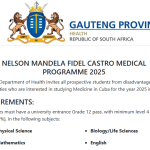As we move into 2025, the landscape of private school admissions continues to evolve, influenced by various factors, including the aftermath of the COVID-19 pandemic, changing parental expectations, and advancements in technology.
This article explores the key trends shaping private school admissions this year, providing insights for families considering private education for their children.

Table of Contents
The Post-Pandemic Surge
The COVID-19 pandemic significantly impacted educational choices, leading to a surge in private school applications as families sought smaller class sizes and more personalized learning environments. This trend has persisted into 2024, with many highly selective private schools reporting record application numbers. For instance, schools that previously struggled with enrollment are now seeing a rebound as parents prioritize safety and academic quality in their choices.
However, while some schools thrive, others face challenges. Less selective institutions have experienced a “COVID correction,” where enrollment numbers have dropped as families return to public or charter schools. This division highlights a growing disparity in the private education sector, where elite institutions continue to attract applicants while others struggle to maintain their student bodies.
Increased Parental Involvement
One notable trend is the heightened involvement of parents in the admissions process. The pandemic shifted many educational experiences into the home, leading parents to become more engaged in their children’s schooling. This increased involvement has translated into higher expectations during the admissions process. Parents are now more likely to seek transparency and personalized communication from schools, wanting to understand how their child’s unique needs will be met.
This shift necessitates that schools adapt their admissions strategies to accommodate these engaged parents. Institutions are increasingly focusing on providing detailed information about their programs and fostering open lines of communication throughout the admissions journey.
Technology’s Role in Admissions
Technology continues to reshape how families interact with schools during the admissions process. The rise of “stealth applicants”—those who research and apply to schools without direct communication with admissions staff—has prompted schools to enhance their online presence and streamline application processes. Schools are leveraging technology to create dynamic online checklists, automate communications, and facilitate virtual tours and interviews.
Moreover, the use of data analytics is becoming more prevalent in admissions decisions. Schools are now able to track applicant engagement and preferences through advanced software systems, allowing them to tailor their outreach efforts more effectively.
The Shift Toward Holistic Admissions
In 2025, many private schools are moving towards more holistic admissions processes. With standardized testing becoming less central—many institutions have adopted test-optional policies—schools are placing greater emphasis on qualitative factors such as character, leadership potential, and personal essays.
This shift reflects a broader trend in education towards recognizing diverse student backgrounds and experiences. This is where private school admission consultants are also taking part with parents to help students with this holistic approach.
As a result, families should focus on presenting a well-rounded application that highlights not only academic achievements but also extracurricular involvement and personal growth stories.
Emphasis on Mental Health Support
The ongoing mental health crisis among students has led many private schools to prioritize mental health resources within their admissions narratives. Schools are increasingly highlighting their support systems for students facing mental health challenges, recognizing that parents today are looking for environments that not only foster academic excellence but also promote emotional well-being.
This trend is particularly relevant for families considering boarding schools or those seeking additional support for their children’s mental health needs. Schools that effectively communicate their commitment to student wellness may have a competitive edge in attracting applicants.
Financial Considerations and Accessibility
Financial considerations remain a significant factor in private school admissions. As tuition rates continue to rise, many families are exploring financial aid options more vigorously than before. Schools are responding by increasing transparency regarding scholarship opportunities and financial aid processes.
Additionally, the growing support for school voucher programs is making private education more accessible for lower-income families. These programs have gained traction nationwide, allowing more students to attend private institutions without bearing the full financial burden.
Conclusion
The trends shaping private school admissions in 2025 reflect broader societal changes influenced by the pandemic, technological advancements, and evolving parental expectations. As families navigate this landscape, understanding these trends can empower them to make informed decisions about their children’s education.
Private schools must remain agile and responsive to these changes if they wish to attract and retain students in an increasingly competitive environment. By focusing on personalized communication, holistic admissions practices, mental health support, and financial accessibility, both families and schools can work together to create enriching educational experiences tailored to each child’s needs.









